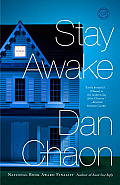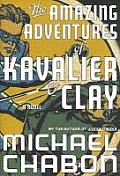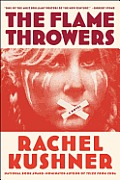
Next week marks the release of a new biography and documentary about J.D. Salinger, whose decades of secrecy and litigiousness makes these kinds of things into major moments. Any new Salinger information is also, for obvious reasons, a cause for worry.
Anyone who loves Salinger wants to believe that he is that author Holden described in Catcher, “a terrific friend of yours and you could call him up on the phone whenever you felt like it.” Any new revelations have the potential to shatter that possibility, especially if the people delivering it focus on the rumors and speculation that have followed their eccentric subject. On the other hand, there is the risk of ignoring the fact that Salinger probably wasn’t always a nice, well-balanced guy.
A Salinger bio is an easy thing to screw up. Fortunately, there are reasons for hope about this latest attempt.
Shane Salerno, who is driving the project, has worked on Salinger for nearly a decade. This is an unlikely commitment if the only payoff is going to be a bunch of scandalous personal details. Nor do I think the Weinstein Company would have invested in making and marketing the movie if there wasn’t more to it than tabloid revelations.
Speaking of the marketing, for a movie about Salinger’s secrets the publicity has so far avoided playing to lower denominators. Mostly, it has consisted of a few tasteful and previously unreleased photos of the author: Salinger as a soldier in World War II, his most important and influential historical context; Salinger in New Hampshire looking every bit a normal, happy person rather than a hermit of the mountains. The theatrical trailer is a bit intense — but what trailer isn’t? A revelation that Salinger was supposedly born with only one testicle, an arguably pointless detail, was told by reviewers who read it in the book, and not part of a PR campaign. The most important new information, that Salinger scheduled at least five new pieces of fiction to be published after his death, emerged in measured announcements through credible sources.
Not everything has worked, especially the cartoon image of Salinger coyly holding a finger to his lips, encouraging people not to spoil any secrets revealed in the book and movie. For an author who resisted publicity to the point of refusing to have his image printed on his books, this is a special and multi-faceted kind of affront. Though it will probably sell books and tickets. But for the most part, the new book and movie seem to be focused on important things that matter, not trying to gin up attention with unsavory speculation. The documentary is, after all, scheduled to air on PBS and not TMZ.
That’s the good news. I do, however, have one lingering worry. This worry has to do with the involvement of a writer named Paul Alexander. Alexander is a former Time reporter and a biographer who has written on subjects as wide-ranging as Sylvia Plath, Andy Warhol, John Kerry and Karl Rove. In 1999, he published Salinger: A Biography. Alexander is listed as “an adviser” on the forthcoming book, and his own biography is the “based on” source for the Salinger documentary. My concern is that Alexander’s book is the single worst Salinger biography around today. Continue reading →








